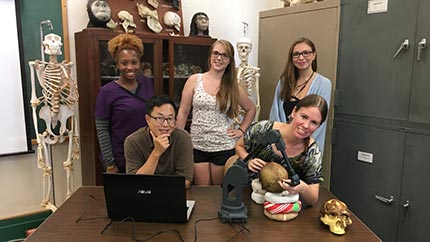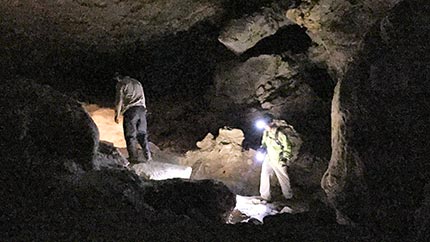Biological Anthropology
Biological Anthropology is a major subdiscipline within the field of anthropology. Biological anthropologists cover a wide range of major areas of study, including, but not restricted to: genetics; human biology/variation; primatology; and paleoanthropology. The core underlying principle of biological anthropology that ties all of these disparate fields together is evolution. Using evolutionary principles, biological anthropologists are interested in understanding humans place in the world today, how we got here, and where we are going. Biological anthropologists spend most of their time conducting research in the laboratory (e.g., skeletal biology, ancient DNA) and in the field (e.g., fossil hunting) and generally work across all different temporal and spatial points.
Core Faculty
Related Courses
- ANTH 215/215L: Introduction to Biological Anthropology (w/ lab)
- ANTH 310: Human Origins
- ANTH 360: Primate Behavioral Ecology
- ANTH 375: Race and Human Variation
- ANTH 458: Forensic Anthropology (w/ skeletal biology labs)
- ANTH 459/659: Extinctions
- ANTH 460/660: Asian Paleoanthropology
- ANTH 604: Biological Anthropology Graduate Core
- ANTH 385G/750G: Special Topics in Biological Anthropology
- ANTH 399/699: Independent Study in Biological Anthropology

